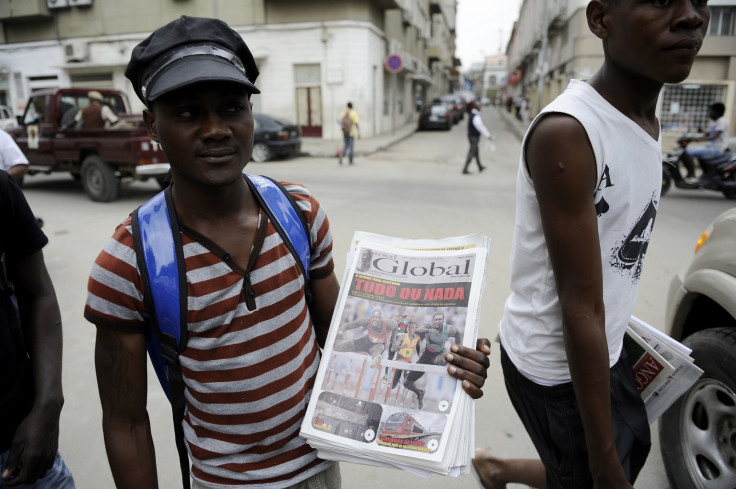Do not sign new media law restricting freedom of expression HRW urges Angolan president
Human Rights Watch's plea to President José dos Santos over media law which 'violates international law'.

A rights group has urged the Angolan President to refuse to sign a new media law until parliament revises provisions restricting the right to freedom of expression.
In August, Angola took steps to silence social media with the first drafts of a number of bills under the so-called the Social Communication Legislative Package. It established a new regulatory body as part of the ruling party (Movimento Popular de Libertação de Angola, MPLA)'s battle to retain its 40-year grip on power in the face of a growing wave of discontent.
According to the rights group, at least three sections of the Press Law "violate Angola's international obligations to respect media freedom". These include:
- Article 29 gives the Ministry of Social Communication the authority to oversee how media organisations carry out editorial guidelines and to punish violators with suspension of activities or fines;
- Article 35 imposes excessive fees to establish a media group of 35 million kwanzas for a news agency (US$211,000) and 75 million kwanzas (US$452,000) for a radio station; and
- Article 82 criminalises publication of a text or image that is "offensive to individuals." Under the penal code, defamation and slander are punishable with fines and imprisonment for up to six months.
Last week, final draft statutes and the other media laws were unexpectedly put forward for discussion just days before Parliament approved the bills on 18 November, catching many media professionals unaware.
"We were never officially informed about dates of the discussion or approval of this law – not even during the discussion of details," Teixeira Candido, the head of the Angolan Journalism Union, said.
Human Rights Watch (HRW), among other campaigners, said the new Press Law may grant the government and MPLA expansive power to interfere with the work of journalists, and potentially to prevent reporting on illegal or improper activity by officials and others, or human rights abuses – all of which are rife in Angola.
"Angola's new media law is the latest threat to free expression and access to information in the country," said Daniel Bekele, senior Africa advocacy director at HRW. "President [José Eduardo] Dos Santos should uphold his commitment to human rights and refuse to sign these media restrictions into law."
Angola's 2010 constitution guarantees the rights to freedom of expression, peaceful assembly, and freedom of the media, but the revised law now gives a body controlled by media professionals (ERCA) the authority to issue licenses to journalists, which are required for them to work.
HRW also warned against the new "overly broad definition" of criminal defamation, which it claims may result in "easy abuse" and harsh punishment including imprisonment.
After 40 years of independence, the Angolan media remains largely controlled by the MPLA. "The predominance of the Angolan government and the most powerful political party undermine the independence of the journalism regulatory body and risks making it a mechanism for censorship and control rather than media freedom," Bekele said. "Unless this new media law is revised, the precarious situation of the media in Angola will only get worse."
The new laws follow the government's recent complaints about what its considers an irresponsible media, including social media. In December 2015, President Dos Santos called for stricter regulation of social media and said, "Social networks should not be used to violate other people's rights, humiliate, slander or convey degrading or morally offensive content."
Reporters Without Borders ranks Angola, 123rd out of 180, in its 2016 World Press Freedom Index.
© Copyright IBTimes 2025. All rights reserved.






















